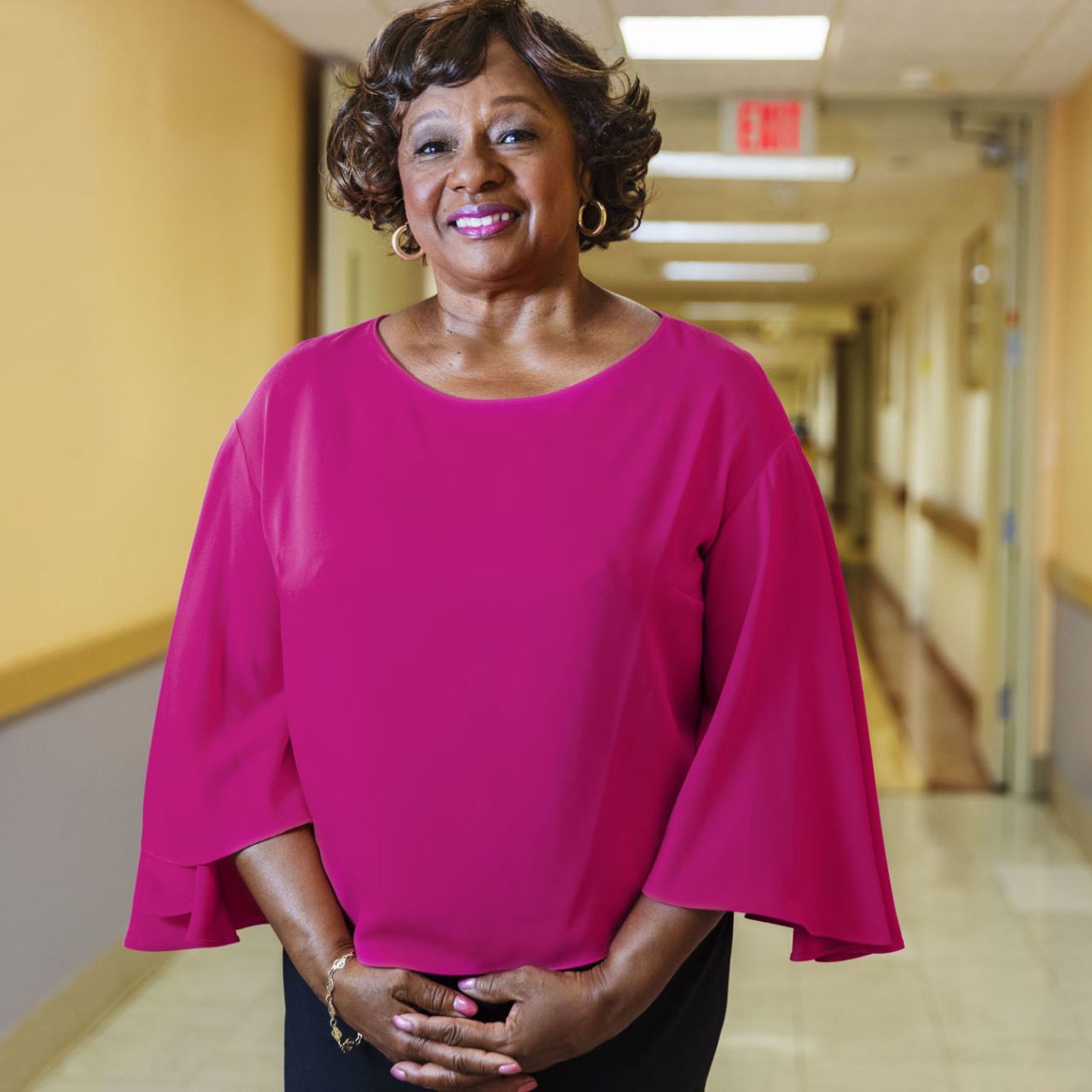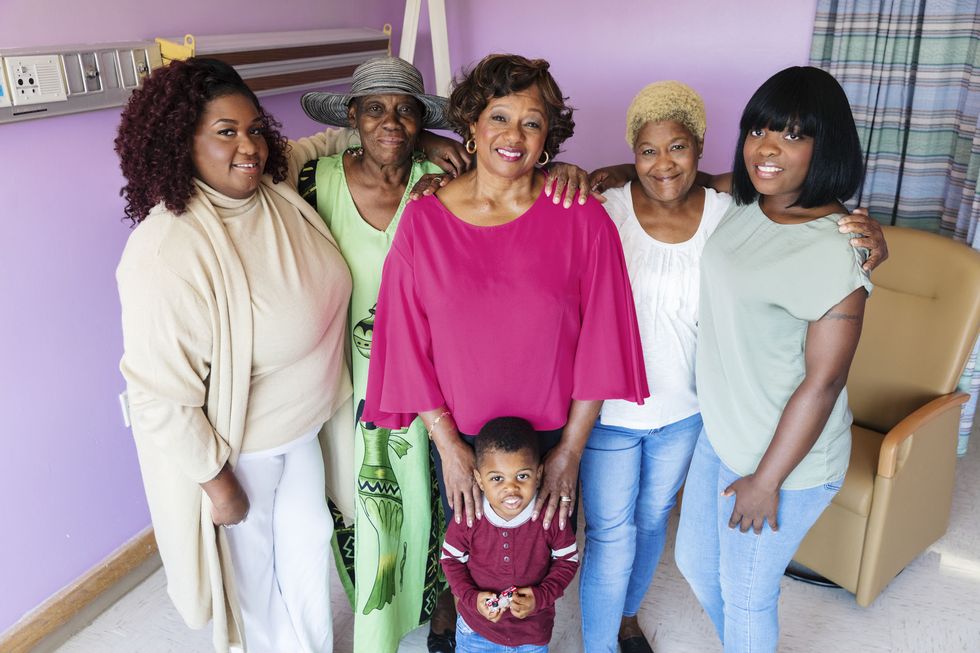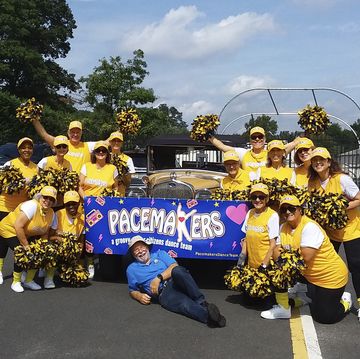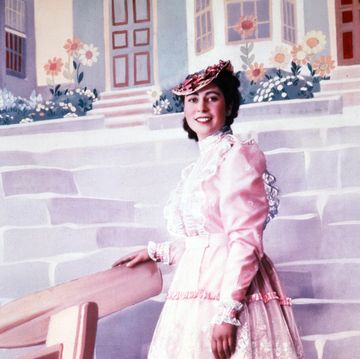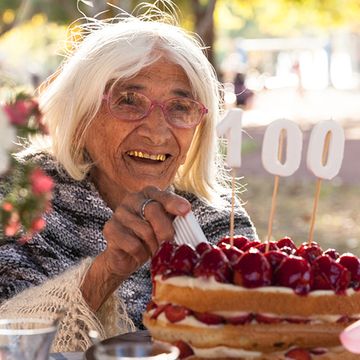I've been a neonatal nurse for more than 40 years, but I became a 24/7 caregiver in 1989. At the time, the crack and HIV/AIDS epidemic was raging, and I helped found the Boarder Babies program at Howard University Hospital. Essentially, we cared for babies who had been abandoned by their parents. They were medically discharged and technically ready to leave but the parents didn't claim them, often because they weren't able to care for them. So, the babies were literally living in the hospital and I was the nurse responsible for them. We had a whole unit devoted to the babies, with as many as 35 kids in there at a time. Some of them stayed up to two years.
At the time, in D.C., a child was not considered abandoned unless the mother had no contact with the child or the institution for 30 days. So the mothers would call on day 28 and the 30 days would start all over again, hence the extended stay. That's why I started the kinship care movement in 1991 and fought for the rights of grandparents who took in babies related to them. I also worked to change the law so that if a child was in the hospital for two days without contact from the mother then that child could be referred to child protective services and become a ward of the state.
I loved these babies as if they were my own, but the hospital almost went broke caring for them. We had a staff of nurses and medical professionals being used to provide daycare services. It just wasn't sustainable.
FOCUSING ON PREVENTION
Once the Boarder Babies unit was no longer in use, I started to shift the program (now called HUH CARES) so that it focused on preventing the abandonment of babies. Many of the reasons that a mother hesitates about leaving the hospital with her baby stem from basic needs. I thought that if we could equip moms with supplies and knowledge then they might feel more confident in their ability to care for the child. (That's been the focus of the program for the past 20 years.)
It's important to understand that the women I deal with now are not on drugs. Many are under-educated and depressed. They are living in poverty and they don't see the potential to get out of their current life. They look at their mom and grandma and see no hope for progress. It's very saddening to them so you can see why caring for a baby would feel so overwhelming. (Many of the fathers are not in the picture; some went MIA once the woman found out she was pregnant, they may be in jail or worse, they're dead.)
Often the moms feel like they can't take their kids home because they don't have what they need. They don't have diapers or clothes, they don't have a place for a child to sleep, people might be smoking or there might be roaches in the house. They feel overwhelmed and unable to care for or parent their child. So, I talk to the families during prenatal visits or in the hospital and try to find out what's causing them to be concerned about taking the baby home. Then we troubleshoot the issues.
I have a stash of supplies that we've received through outreach from churches and organizations. I'm generally able to get the mothers home with basic necessities like diapers, clothes and baby cleaning supplies. I also make sure the mom understands the benefits of breastfeeding or a way to obtain formula. We'll ensure she has a car seat so the baby can ride safely in a vehicle.
CELEBRATING LIFE
The majority of the mothers I work with didn't have anyone in their life excited about their pregnancy and they didn't have a shower or receive cards. They often don't even have visitors. So, we throw a baby "gifting." We go in the hospital room with flowers and cards and make it exciting for her. We want her to feel happy and good so she can look at the baby and be thankful for him or her. That's often when we give her the basket of supplies and other items for her to feel confident in her life as a new mom.
The support we provide goes beyond physical items too. The stress that these women face is significant. Many of them just need someone to listen to them and not criticize them. They don't need anyone telling them what they are doing wrong. I try to find just one little thing a mother is doing right. Maybe the baby is wearing a special outfit she's saved for her follow-up appointment or the baby is smiling and happy. We try to find what gives her strength and compliment her on it. At the same time, we talk to her about her dreams. It's amazing but no one has asked these women, "What would you like to be?" So many say "I don't even know the answer to that question because no one has ever asked me."
STARTING YOUNGER—AND INCLUDING FAMILIES
We currently work with high school students too. (We always worked with pregnant teenagers but usually we didn't see them until they delivered in the hospital.) But now, we can actually get to know them as soon as they find out they are pregnant through a clinic outreach at certain schools. And we've made it a point to include everyone in the family. If the father or grandmother comes with a young woman and wants to be part of the education we provide, we always include them. We recognize that this young woman goes home and needs support. We try to make sure her family is also informed about her needs and the benefits of making her happy and successful.
We're also fighting against generations of myths. Some of these women were told by family members that breastfeeding is nasty and you shouldn't do it. Some were told a baby should not be picked up when crying. That's just not true, so a lot of my work involves ongoing breastfeeding and parenting support. We are fighting the untruths and working to change mindsets.
STAYING IN TOUCH
After a mom and baby leave the hospital, they come back once a month to get their WIC (the federal program that provides support and education to low-income pregnant and nursing women) vouchers. Through the WIC check-ins, we are able to continue monitoring the kids on a monthly basis until the baby is five years old. But my connection to the children extends way beyond that point.
I still keep in touch with many of the kids from the original Boarder Babies unit. I recently saw one of them who is now 35 years old and doing well. I've been to baby showers and baby deliveries and high school and college graduations.
I have two kids and five grandchildren of my own and they joke that they hate going anywhere with me in D.C. because I know everyone. I have a whole network of extended family through my work—and I wouldn't have it any other way.
A BORN CAREGIVER
Caregiving is part of my DNA and I'm very proud of it. I attribute it to my two grandmothers who were always caring for their kids, family members and children in our community. Knowing that I have this opportunity to make a difference in the lives of those around me and to help women become confident, loving mothers keeps me going.
HOW YOU CAN HELP
The Boarder Babies program benefits most from funds versus items (this way, the staff members can purchase necessary items for the families in need).
Checks written to Boarder Babies at Howard University Hospital can be sent to:
Boarder Babies Program at HUH Department of Pediatrics and Child Health
Howard University Hospital
2041 Georgia Ave NW
Washington D.C. 20060
Davene was selected as the first recipient of the Director's Award from the Office of Research on Women's Health at the National Institutes of Health (NIH) in 2017.
